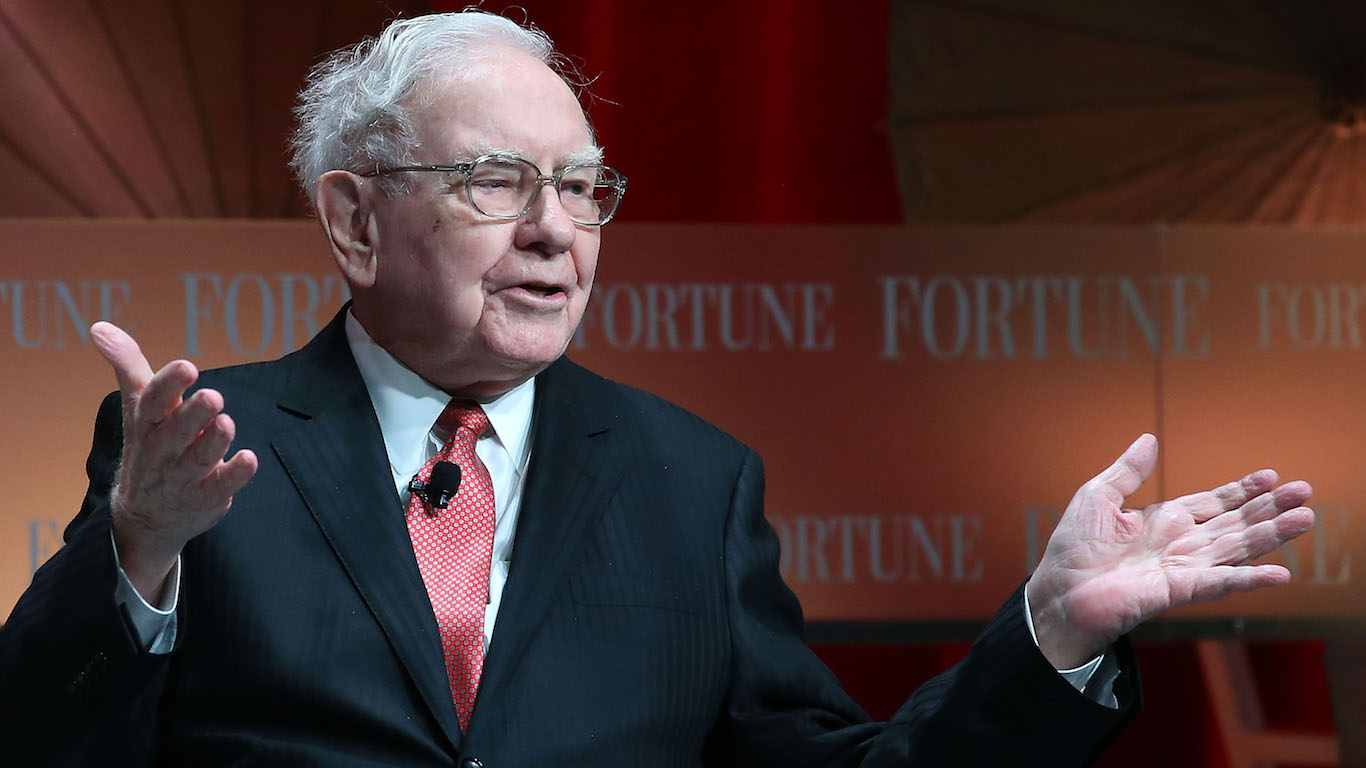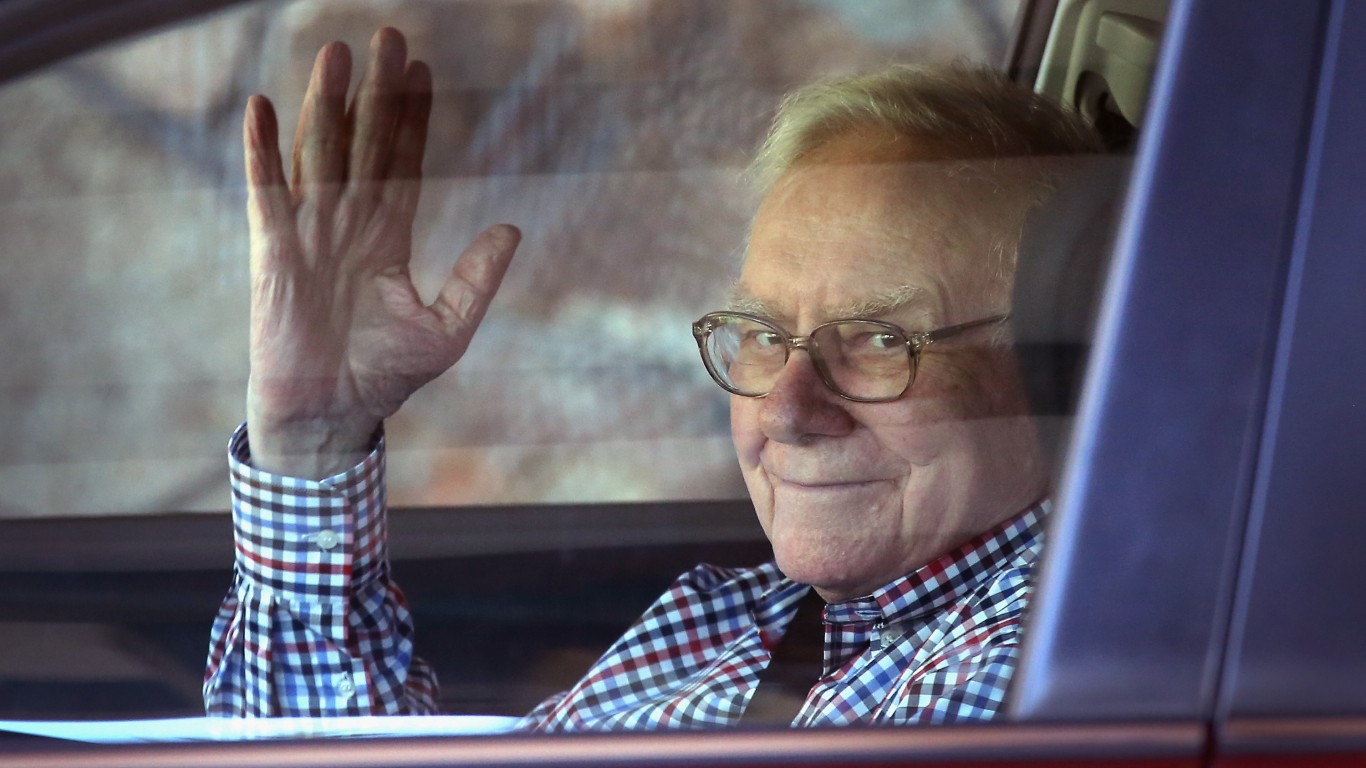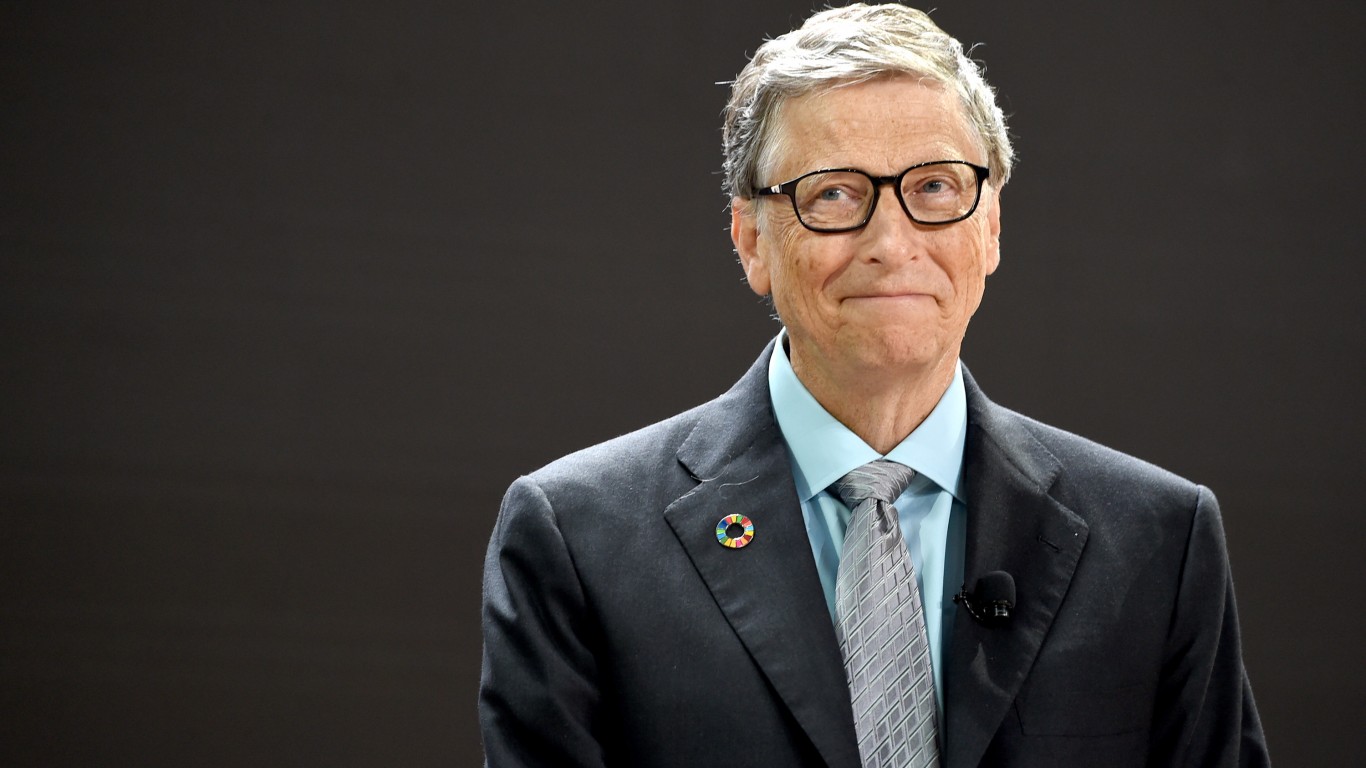Investing
10 Life Lessons From Warren Buffett Everyone in Their 20s Should Hear

Published:

Warren Buffett, the so-called Oracle of Omaha, is widely recognized as a legendary businessman, investor, and philanthropist. He built a staggering fortune by investing in undervalued companies with strong foundations and long-term growth potential. The investment company he co-founded, Berkshire Hathaway Inc. (NYSE: BRK-A), has grown over the years into a multinational conglomerate worth over $870 billion. He continues to be its chief executive officer and to have a rock-star-like presence in the investing world, even as his age slides into the mid-90s.
The internet and books are full of words of wisdom Buffett has shared over the years, both investment and life advice. They so often resonate due to their practical, down-to-earth quality. Among his well-known quotations are these:
What follows are 10 life lessons attributed to Buffett that are particularly relevant to young adults. That is, those just getting started in their careers and developing their investing philosophies. Or perhaps they are still finding their way—figuring out what kind of life they want to lead and what they want to get out of it.

Forbes asked in 2019 whether Buffett was still relevant. The answer was yes, for his vision, his resilience, and his principles. Despite the current market and economic uncertainty, little about Buffett and his style of investing has changed since then, as he approaches 94 years of age. He built his wealth by value investing. That is, by buying into businesses with a solid foundation but with stocks that trade for less than their intrinsic value. It is a strategy that made Berkshire Hathaway into a conglomerate with a current market cap near $871 billion and made Buffett one of the wealthiest persons in the world. No wonder his words and actions still make headlines.

Buffett is a renowned long-term thinker, as well as a proponent of the power of compound interest. In investing, as with so many aspects of life, he believes in starting early. After all, the longer investments have to mature, the better the outcome is likely to be. He started his investment journey at the age of 11 and became a billionaire at the age of 56. He once advised students who wanted experience in business to go out and start a business. “Taking jobs to build up your resume is the same as saving up sex for old age,” he said.

Starting early can be about more than investing. Starting the day early can provide time to think about the day ahead and may even allow commuters to avoid rush hour traffic. Getting started on projects or facing obligations sooner than others allows more time to meet challenges and to become a source of solutions to others. An early-riser or first-mover lifestyle can reap benefits later in life. As Benjamin Franklin is credited with saying, “Never leave ‘till tomorrow which you can do today.”

Buffett has suggested that anyone who would be comfortable having their actions described in detail on the front page of their local newspaper, where family and friends will read it, should go ahead and do those things. Buffett is a proponent of integrity in all dealings. He is known for his strict business ethics. Because he does not short-change investors or entertain questionable business ethics, he has earned the respect of many, including investors who have trusted him with their money.

Integrity is built on values such as honesty, sincerity, and fairness, and it helps people to make good decisions and be successful. People with integrity are trusted and respected. Historical figures known for their integrity include Abraham Lincoln and Nelson Mandela, and in pop culture, Emma Watson and Tom Hanks are known for their integrity.

Buffett has compared investing to a baseball batter waiting for a good pitch. Letting cash pile up while waiting for an excellent opportunity is fine, he says, because investors, unlike baseball players, are not called out after three strikes. Having patience was a lesson Buffett learned early on. Famously he sold shares in one of his first stock investments because the price had fallen and then recovered a bit, and then he regretted the sale when the shares soared afterward.

Having patience is about more than waiting. It is about self-control. People who are patient take time to consider a situation before acting, and they tend to have respect and empathy for others. Patience is considered a virtue that makes one better prepared to handle challenges and stress in life. It leads to better decision-making and reduces the chances of regretting impulsive decisions and actions. In other words, it contributes to success, happiness, and well-being.

The Warren Buffett method for setting priorities has been widely shared. The idea boils down to this: Write down your top 25 goals. From those, choose the five goals that are most urgent and the highest priority for you, then discard the rest. The key is to prioritize your life around your life mission. That is, decide what is truly important to you, and then only focus on that. Some dispute whether this method really came from Buffett, but it is good advice nonetheless.

The goal of prioritizing tasks is to help avoid wasting time and procrastination, as well as to provide focus. There are many methods of prioritizing, including the ABCDE time management method, the Ivy Lee method, the Eisenhower matrix, the Pareto principle, cost-benefit analysis, and the eat-the-frog technique. The goal is always the same: to get the most important stuff done. Find what works for you and stick with it.

Buffett also learns from his failures. He once told students at Columbia, “Don’t fear failure. I got turned down by Harvard. It was the best thing that ever happened. … And don’t let it eat at you by looking back. Just keep going.” In the end, Buffett said in his 2022 annual shareholders letter, “the weeds wither away in significance as the flowers bloom.” That is to say, mistakes are trivial compared to the gains to be made by persevering.

Failing teaches us things that we cannot learn otherwise. It is an opportunity to reflect and consider our motivations, to learn, adapt, and ultimately thrive in our personal and professional lives. We don’t celebrate failure, but rather what we learn from it. And we see it as a stepping stone toward growth and success. True failure comes from not learning from our mistakes, or from not having the courage to try in the first place.

Another thing Buffett is known for is rarely changing his habits. Not only has his investment strategy and advice remained the same for many years. His diet has been the same since age six. He still lives in the same house he bought in Omaha in 1958, and he has driven the same car for years. When he figures out what works for him, Buffett rarely changes it. As he once said, “You know … you keep doing the same things and you keep getting the same result over and over again.”

Consistency is all about building good habits. With repetition, positive behaviors and attitudes become a natural part of everyday life and increase the odds of success. Plus, people who are consistent are often trusted because they can be relied or depended on by others. It has been said that if one remains true to one’s principles, it provides confidence, conviction, purpose, and a future.

Another quotation regularly attributed to Buffett is “Without passion, you don’t have energy. Without energy, you have nothing.” Buffett is a shining example of what it means to be passionate, as indicated by how active and how sharp he is at 93 years of age. He is a big proponent of bringing passion to your work and to your life: “Do what you would do for free, having passion for what you do is the most important thing.”

The key to success is to be passionate about what you are doing and always give it your best effort. Passion helps people achieve their goals, build their dreams, and find purpose in life. It also helps people overcome obstacles, improve themselves, and increase their chances of success. And, as with integrity and consistency, having passion attracts supporters, partners, and followers, increasing the odds of success.

Another piece of advice Buffett has offered for years resonates not only with investors but is invaluable guidance in general. That is, to associate with people who are more insightful, more talented, and more experienced than yourself. By doing so, one may “drift in that direction.” Buffett’s long-time business partner, Charlie Munger, was a very successful investor and philanthropist, as well as the “architect” of Berkshire Hathaway’s business philosophy. Buffett’s mentor was investing legend investor Benjamin Graham, and he has a close relationship with tech innovator and philanthropist Bill Gates.

What happens when we associate with individuals who are better than we are, whether intellectually, morally, or professionally, is that we open ourselves up to new perspectives and opportunities for growth. We see them as sources of inspiration and motivation, becoming encouraged to do what it takes to bring our best to the table. Then, as we acquire new expertise, we can pay it forward to help others along their journeys.

Buffett’s long-time partner Charlie Munger once said, “You’d be amazed at how much Warren reads,” supposedly eight hours per day. Buffett has a reputation as a voracious reader and a strong advocate of continuous learning, regardless of age or profession. Buffett famously said, “The more you learn, the more you’ll earn.” As he sees it, self-education and staying informed is a never-ending journey. Identify experts, connect with them, and document and share what you learn.

Lifelong learning offers us a deeper understanding of ourselves and our passions. In careers, it creates job security, opens new doors, and supplies workers with the skills needed to thrive in their chosen fields. In life, it can help boost self-confidence and self-esteem, and recent research suggests that learning keeps brain cells working at optimum levels. Again, this contributes to success, happiness, and well-being.

Perhaps with his recently departed close friend Munger in mind, Buffett told a shareholder earlier this month that everyone should write their own obituary. Once we figure out what kind of life we want to have, we can begin building that life. And keeping in mind how we would like to be remembered is the best way to help us make it so. That includes many Buffett’s pieces of advice featured here: set your priorities; start right away; be patient, consistent, and passionate; and never give up.

While sharing his thoughts with those shareholders, Buffett remarked that people living in present-day America have as good a chance at achieving a fulfilling kind of life as anyone in world history. He said, “You’re entering the best world that’s ever existed. And you want to find the people to share it with and the activities to participate in that fit you. And if you get lucky like Charlie and I did, you’ll find things that interest you young. But if you don’t find them right away you keep looking.”
∴
Start by taking a quick retirement quiz from SmartAsset that will match you with up to 3 financial advisors that serve your area and beyond in 5 minutes, or less.
Each advisor has been vetted by SmartAsset and is held to a fiduciary standard to act in your best interests.
Here’s how it works:
1. Answer SmartAsset advisor match quiz
2. Review your pre-screened matches at your leisure. Check out the advisors’ profiles.
3. Speak with advisors at no cost to you. Have an introductory call on the phone or introduction in person and choose whom to work with in the future
Thank you for reading! Have some feedback for us?
Contact the 24/7 Wall St. editorial team.